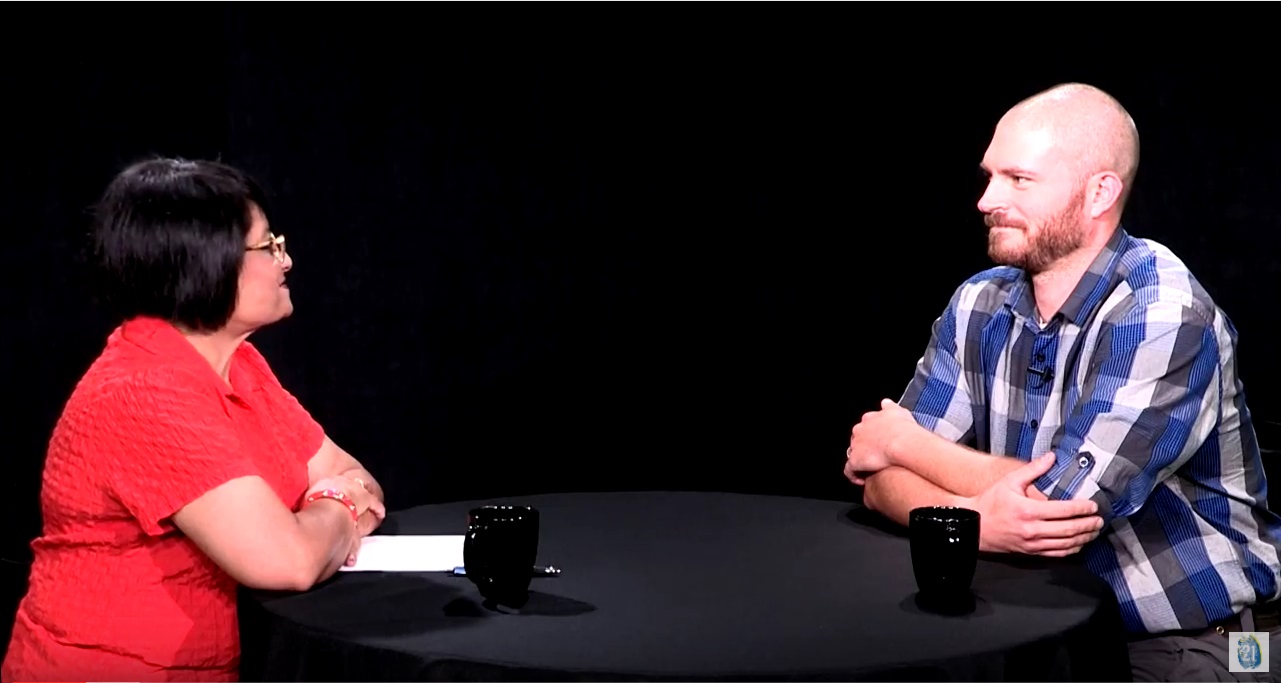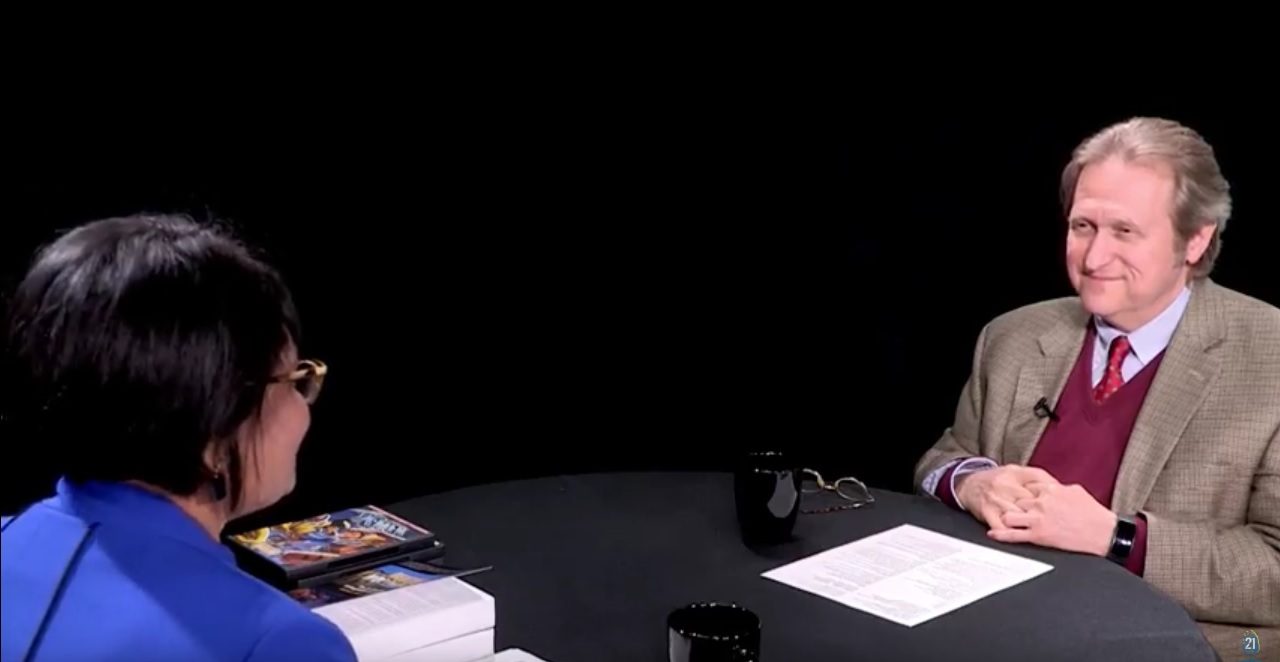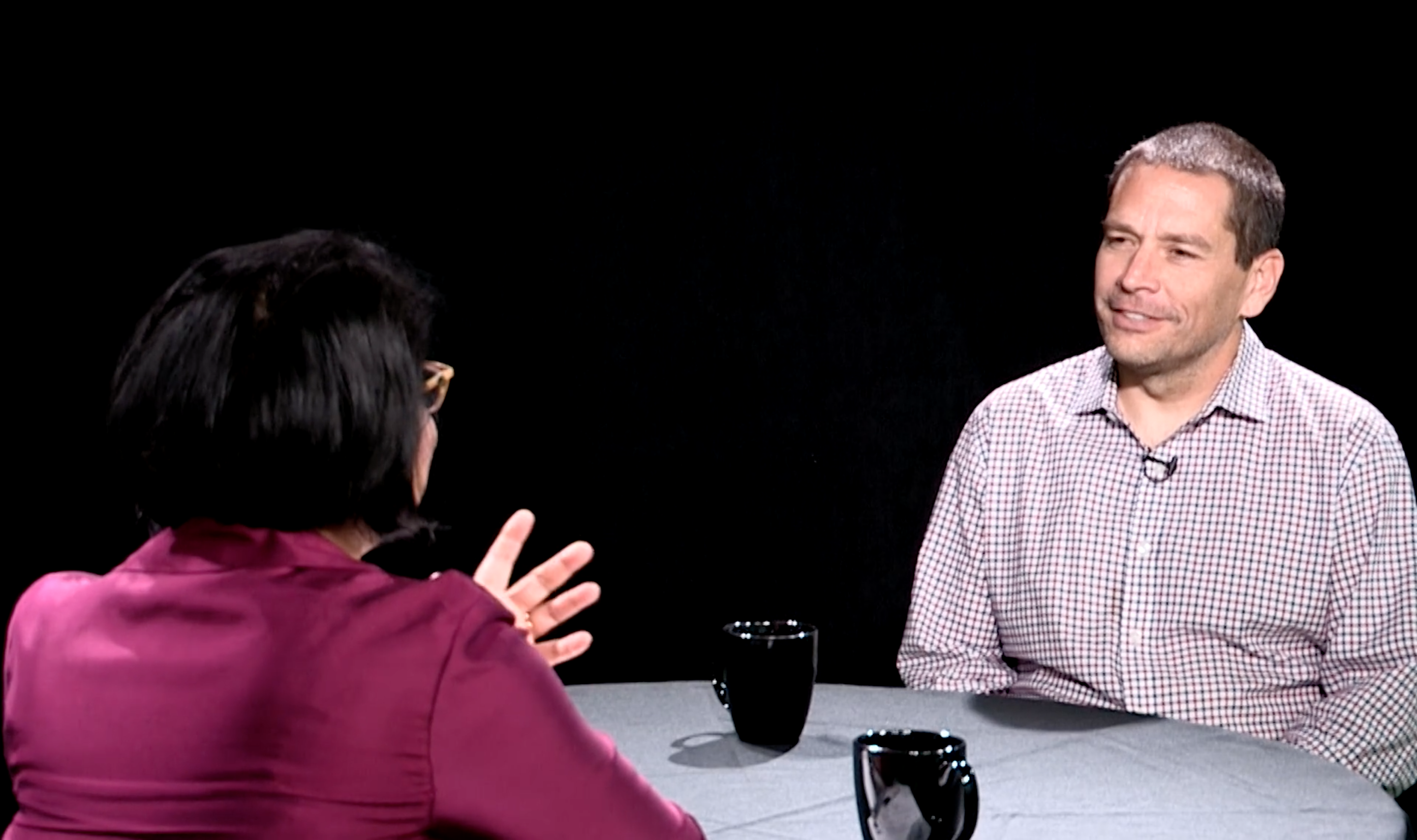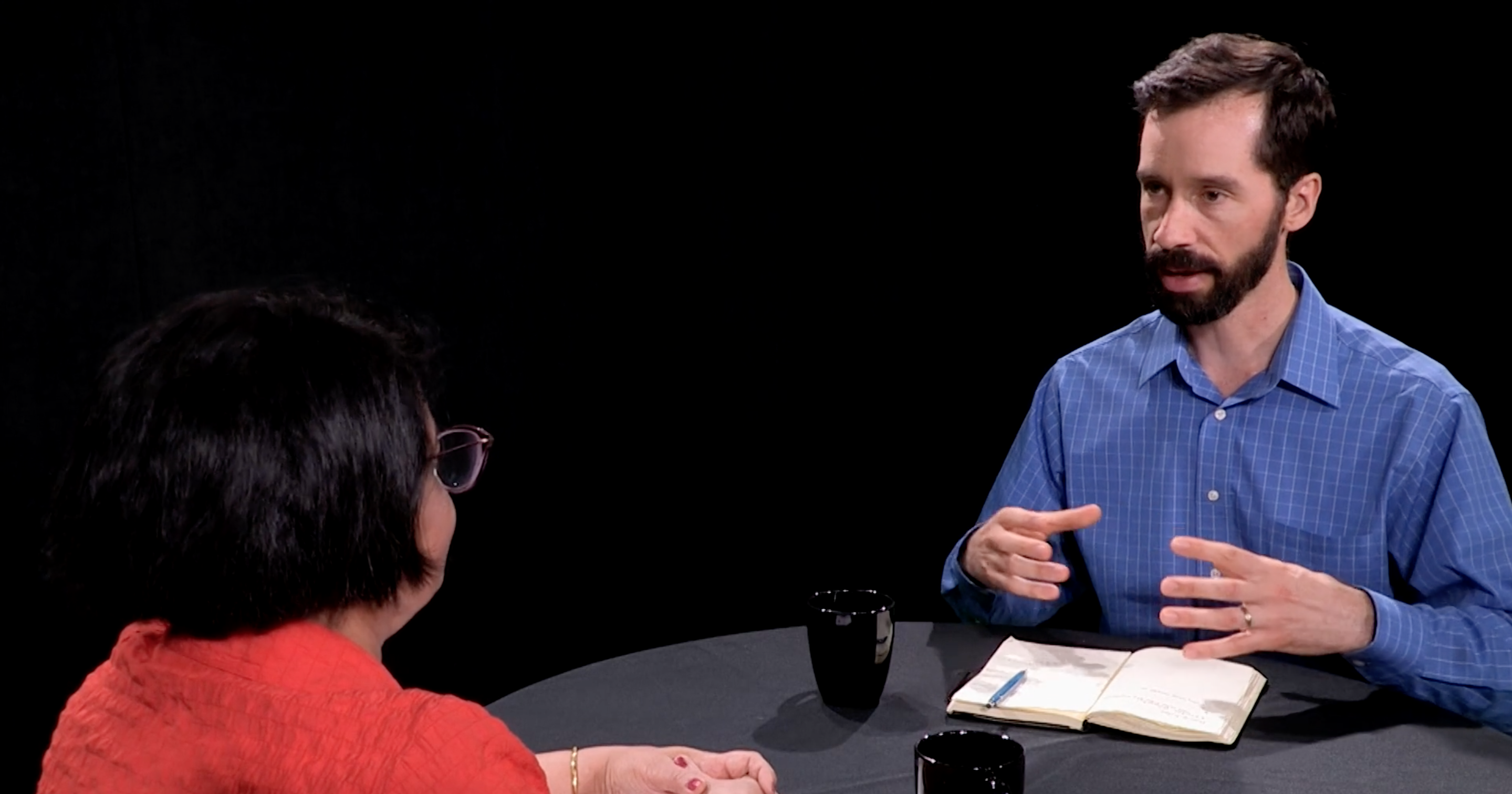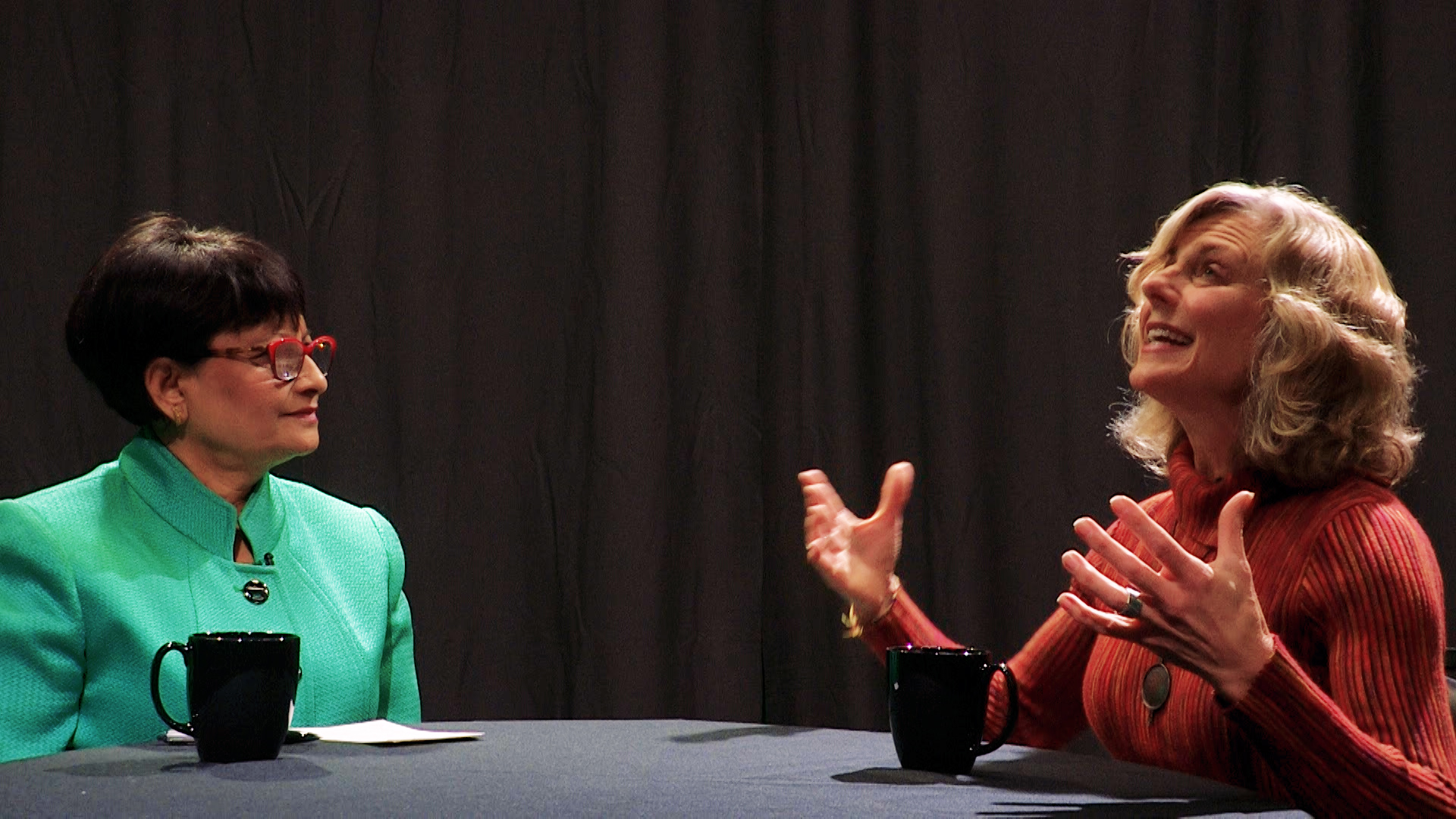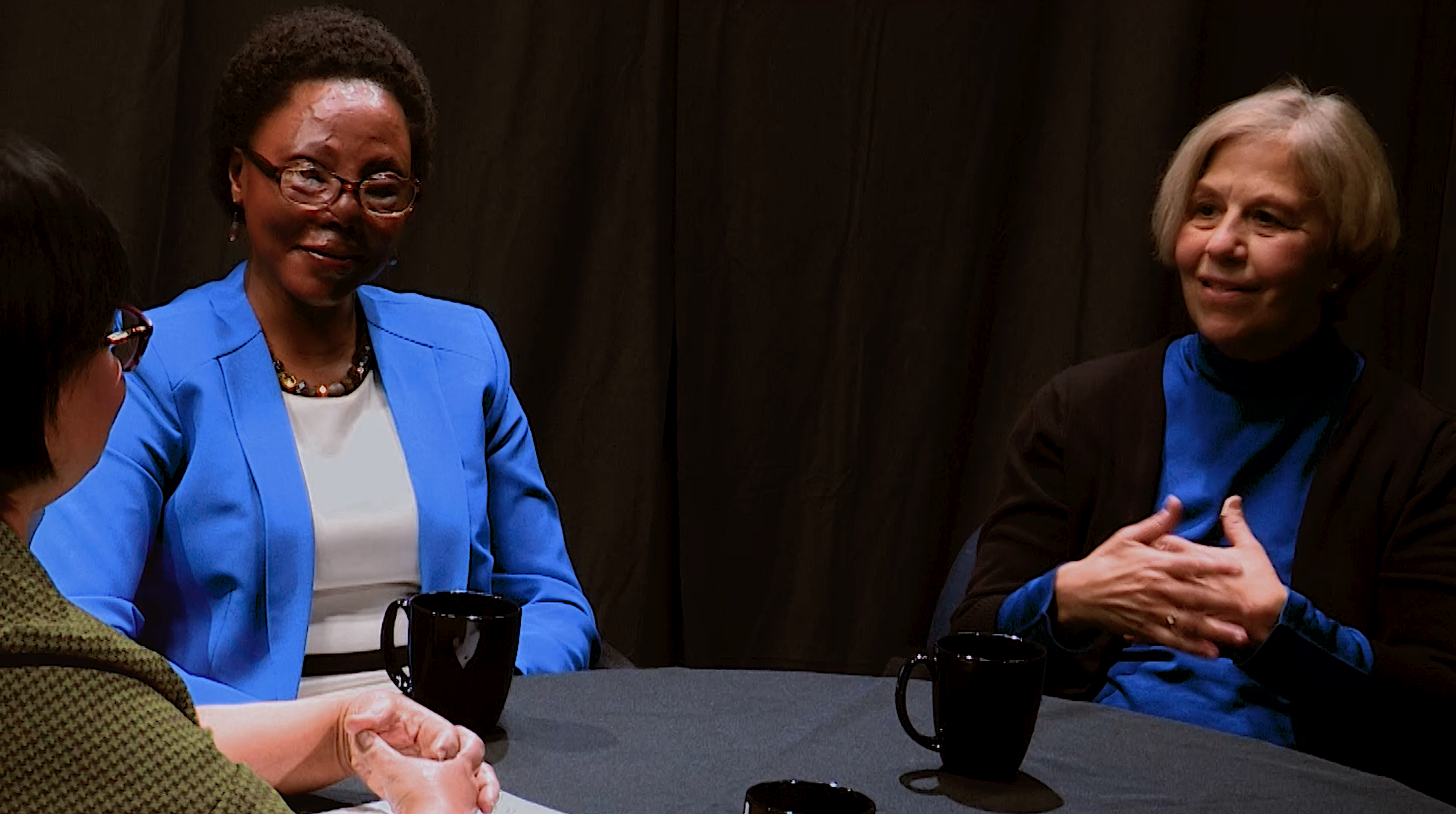With zero budget and no technical help, filmmaker Chris Mason shines a spotlight on Pittsburgh’s premier Puerto Rican band with her documentary short “Machete Kisumontao el Documental”
Scene: A clear but brisk night at Pittsburgh Winery. You enter the room, thick with body heat and laughter. A seven-piece band is center stage–brass horns blazing, the congas and bongos are battling, and someone is shaking a tambourine like your great-grand at a tent revival. Pulled from their seats by hypnotic Afro-beat rhythms, the audience is on their feet. A saucy, gray-haired siren, 62 years young, hits a mambo side step in the middle of the dance floor. A parade of women, with swinging hips and flaring skirts, twirls around her. I never salsaed in my life. But the rattlesnake shake of sekeres’ loosens up my limbs and my feet glide toward the crowd as the barefoot songstress steps to the mic. Her powerful soprano washes over me, planting images of protests and hurricanes in my mind. And for a moment I am lifted from that room into a field, where workers chop cane at the root and lift their heads in song. I do not speak Spanish but somehow I recognize the words. And I sing along, and the crowd is clapping, and the congas ride high. And I, have transcended.
For most of us, a night like this would be chalked up and catalogued in our memory banks as simply a great time on the town or a night to remember. But for independent filmmaker Chris Mason, it was a divine sign. A calling to capture these magical moments on film and share them with the world.
“Machete had a three-hour show where they did salsa, bomba, plena,” Mason says. “The audience was involved. There was African drumming. It was fantastic. So my interest was to find out more about what they were doing, what they were singing about, what kinds of music they were playing. [And] I just got all of that great footage and then sat down and spoke with each band member. Of course, it’s a very Pittsburgh band in that they’re from all different backgrounds and ethnicities. It was cool to talk to each of them about their backgrounds being from Indian, Italian, European ancestry. And them performing this amazing Puerto Rican music.”
Enter Machete Kisumontao el Documental, the story of a Pittsburgh-based Puerto Rican band formed in 2006 by musical director and lead singer Maria “Geña” Escoriaza, along with Dino Lopreiato, Vijay Bakrania, and Ketan Bakrania–three members of Pittsburgh’s experimental, progressive band, Chaibaba.
“With Geña’s guidance providing raw material for them to learn the music,” Mason says, “the four of them started playing and performing songs she remembered from her childhood. Songs made by Puerto Rican artists in the early twentieth century that speak about the struggle of the people. [Machete] really was the formative band here performing music from Puerto Rico, specifically. I don’t think people knew that, really, outside of the Latino or the Puerto Rican community in Pittsburgh.”
Since I’m clueless about music native to Puerto Rico, Mason provides a mini lesson. “They play a little bit of crossover, [but] most of it is primarily Puerto Rican salsa, bomba, plena. Whereas salsa is claimed by many different places a lot of people even consider that it [originated] out of New York, bomba and plena are for the most part native to Puerto Rico. There are some Caribbean islands that share a lot of similar music styles, [and] of course there’s a lot of African influence.”
Mason got started in filmmaking late in life by taking her first documentary video workshop at Pittsburgh Filmmakers in the summer of 2012. “I loved watching documentaries [but] I never picked up a video camera before that class, so I didn’t know if I would like filmmaking or would even be good at it. But as soon as I got into it, I knew how to make a documentary.”
Of course, she knew she had to learn how to do it, learn the craft. So she stayed at Pittsburgh Filmmakers and took the required intro to film, video, and camera classes. And being an older student fueled the urgency to move quickly through the courses so that she could start filming immediately.
Armed with only what she learned at Pittsburgh Filmmakers and a few freelance film jobs she snagged from friends to wet her filming feet, Mason tackled the ambitious task of making Machete, a 47-minute short, with no technical help and zero budget.
“You know I went into this doing everything myself, literally,” Mason says. “I financed it using my money. I did all the camerawork, all of the editing, I’m not good at titles, [but] I had to do all the graphics. So just the sheer amount of work for one person, it was definitely a lot to go through.”
But after raising $500 through an Indiegogo campaign so that she could add Spanish subtitles, pay for promotion, and enter it into film festivals, all that hard work paid off in April 2015. Out of 1,100 entries, Machete Kisumontao el Documental was selected as one of 125 films featured at The Rincon International Film Festival in Puerto Rico, the first festival Mason submitted to.
“We were ecstatic,” Mason says. “We couldn’t believe it. To have people in Puerto Rico see the value in the filmmaking, but also in what Machete is doing [in Pittsburgh], was great.”
Following the world premiere in Puerto Rico, Machete made its rounds locally in the academic circuit with screenings at Carnegie Mellon University, University of Pittsburgh, Carlow University, and Assemble in Garfield. But the latest, and I assume greatest achievement by the way Mason smiles as she shares the news, occurred this month when Machete Kisumontao el Documental screened in New York City for the International Puerto Rican Heritage Film Festival.
“To show in New York, I mean…” Mason grins. “That’s almost bigger than Puerto Rico.”
While it’s been a year of celebrations for the Machete Kisumontao project, Mason isn’t sitting around basking in the glow of that success. Guaracha Latin Dance Band, her next documentary, is already in production. Though also a music documentary, this new film is slightly different in that it’s a roux of riches. The mixture being Guaracha’s music, which is Cuban-inspired, the story of its African roots, and then Mason spices the plot by making the relationship between a father, Miguel Sague Jr., and his son, Miguel “Cha” Sague III, the central theme of the film.
Miguel Sague Jr. started the Guaracha Latin Dance Band in the 80’s as a Cuban refugee in Pittsburgh. As the first full Latin band in the city, Guaracha played an instrumental part in bringing the Latino community together. After years of singing, songwriting, and being the driving force of the band, Miguel Sague Jr. passed the bandleader reins to his son.
“They’re awesome people, so it’s going to be a wonderful human interest story about their music legacy here in Pittsburgh,” Mason says. “They’re musicians, but then they also [provide] great educational programs about Afro-Latin history and the salsa, merengue, reggaeton, and bachata music they’re known for. [And] there’s so much African influence in their music, it’ll also be good to highlight the African influence in Cuba, which most people don’t acknowledge as much. They think of Castro and communism and that’s it. And with [our relations] with Cuba opening up a little more now, it’s important to get these stories out. And to quote Geña from the Machete documentary, a good way to share culture is through music and food.”
Mason, who grew up in the Bellevue area of Pittsburgh in what she acknowledges was a very racist, very homogeneous, very white working-class neighborhood, doesn’t shy away from talking about her own biased upbringing. However, she recalls traveling into downtown Pittsburgh on her own, meeting different people from the time she was ten, and says it was then that she began to realize that she didn’t have to be scared of or hate people because of the color of their skin. Those experiences and her natural curiosity to learn about people saved her from embracing the narrow-minded beliefs that some of her family and neighbors held.
After a brief stint at Duquesne University, she wandered around the city for years, working in coffee shops and restaurants, and hanging out with the artists and musicians on the South Side. Her curiosity about people led her to the Birmingham Foundation, where she worked for several years, then to Community College of Allegheny County where she studied cultural anthropology and social sciences and received an associate degree.
Along the way, Mason has been active in a number of non-profit organizations including Amnesty International, the Thomas Merton Center, and What’s Up Pittsburgh. “As I was working, I was also becoming more in tune with social justice issues, especially racial justice. So that is always going to be in the film work I do in some way. Maybe not in every piece and not just [thrown] in your face–’cause that’s just not my style. But through art and concentrating on a creative pursuit like music, you can put that out there. You can have the person talking a bit about their struggles dealing with racism, or homophobia, or [navigating] life in low-income neighborhoods and what that means. And then go back to the music.”
Mason won’t label her work as “political” but offers this. “I feel like oral history and storytelling is a rebellion against what we’ve been consistently taught in our history books and by the media. I always say I’m not telling stories, I’m helping to tell stories that people may never hear or understand or know. And [these stories] are very Pittsburgh, [stories about] people who probably live down the street, or they’re somebody you would bump into, or see out playing music and maybe understand that they have had stories that have been hidden for so long. Stories that may be very similar to other immigrant stories of Pittsburgh. But instead of hearing the same kind of European perspective, let’s find out more about what happened in the Caribbean, in Central America, and why people are coming, and their hopes and dreams and challenges and aspirations. Then maybe people will see that we are not all that different, but that there are also some very, glaring inequalities that those who do have the power need to address, sooner rather than later.”
By pulling the stories of Machete Kisumontao and Guaracha Latin Dance Band from the hidden shadows of Pittsburgh’s music history, Mason hopes to not only entertain and educate audiences, but to also expand Pittsburgh’s cultural identity by providing a welcoming, more inclusive narrative to tell. A narrative much needed in a city with such a strong undercurrent of racial discord.
As for her ultimate goal as a filmmaker, Mason wants to contribute to a community of women and other filmmakers who are not in the majority right now when it comes to film. “Whether it’s women or LGBT people, people of color, Asian Americans, Latinos [who want] to make media, but [also build] a really strong movement of artists who are going to tell their stories or the stories of the people and the communities they care about. To have that be out there just as much as the typical, white narrative that we see.
“When I did the Machete documentary, I wanted to get it done partially to show that you could do it and not to be worried about where the money’s going to come from, or if anyone was going to watch it. That the important thing is the contribution you’re making. That’s what I felt from the beginning, and that’s what keeps me going.”

